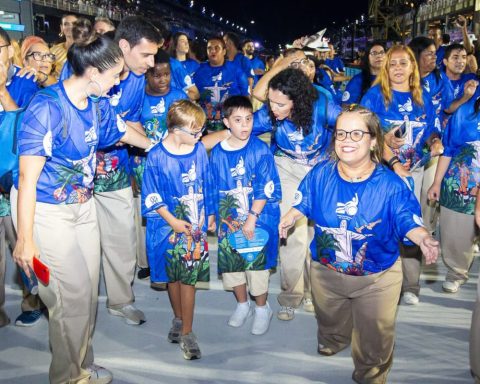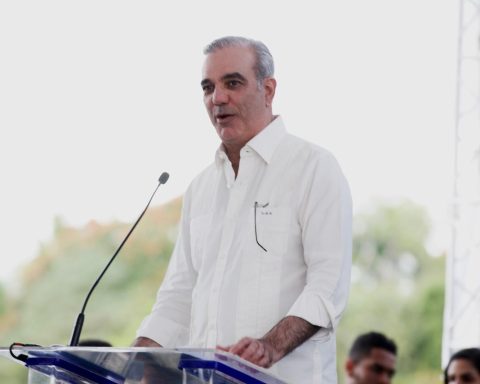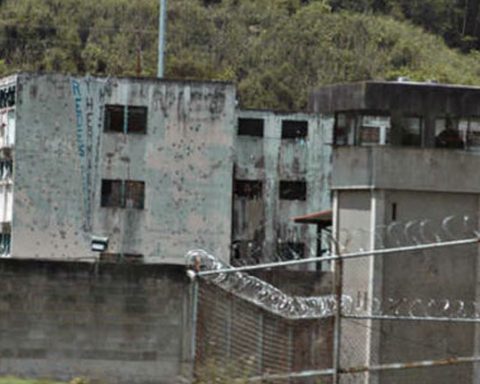The Minister of Finance, Fernando Haddad, translated the tax reform advocated by the government as a more progressive regime, in which the rich pay proportionally more taxes than the poor, include them in the Budget and provide development to the country. He submitted, this Tuesday (11), a written statement to the Monetary and Financial Committee of the International Monetary Fund (IMFC) with a summary of the government’s economic proposals.
“Our objective is to bring the poor to the budget and the rich to the tax system”, highlighted Haddad in the document. Due to his official trip to China, the minister will not participate in the Spring Meeting of the IMF and the World Bank, held this week in Washington. The document is signed by Brazil and ten other countries represented by the Brazilian seat on the body.
According to Haddad, the government works with the National Congress to allow the approval of a tax reform that corrects distortions and results in structural changes in the Brazilian economy. The minister cited as results the simplification of legislation and procedures, the end of the fiscal war between states and the increase of transparency and justice in the system.
“The main objective [da reforma tributária] is not to increase revenue, but to improve the quality of revenue mobilization. Brazil’s tax system is excessively complex, regressive, distorted and cumbersome. It unduly burdens companies and accentuates regional and social inequalities”, highlighted the minister.
The tax reform is planned in two phases. In the first semester, the government intends to reformulate consumption taxes, creating a dual value added tax (VAT) (one part collected by the Union and another by states and municipalities). In the second half, the government intends to reform the Income Tax and the taxation of corporate profits.
According to Haddad, the government will also take advantage of the tax reform to review tax incentives for certain sectors of the economy. According to the minister, the review of tax expenditures – how much the government fails to collect with incentives – is necessary to combat “state capture” by certain sectors of the economy and make the Brazilian tax system fairer and more progressive. Haddad pointed out that the 27 governors support the tax reform proposal.
framework
The document also listed the fiscal measures adopted in the first 100 days of government. Among the measures mentioned are the reversal of exemptions granted in 2022, including on fuel, and the recomposition of funds for immediate spending needs.
Haddad mentioned the fiscal framework, presented at the end of March. According to the minister, the measures will contain the growth of the public debt.
“We are presenting to Congress and society a new fiscal structure that can credibly stabilize the public debt over time and, later, put it on a clearly downward trajectory”, highlighted the document. Haddad reiterated his commitment to end 2026 with a primary surplus (a positive result in government accounts without interest on the public debt) of around 1% of the Gross Domestic Product (GDP, sum of the wealth produced in the country).
Climate changes
The statement sent to the IMF also addressed climate change. The minister called for close international cooperation to fight the effects of global warming, especially in the most vulnerable regions. According to the document, it is possible to reconcile economic growth, social justice and preservation of the environment.
“The pandemic has shown the potential and shortcomings of global cooperation in the face of an overwhelming global challenge. Authorities around the world reacted promptly, following different strategies and approaches, including the IMF. However, we are convinced that closer international cooperation would have resulted much better, especially for the poorest countries and most vulnerable populations”, highlighted the minister.
Elsewhere, the document warned about the risk of global economic fragmentation, brought about by the growth of protectionism and the concentration of trade and investment flows between countries with the same geopolitical alignment. According to Haddad, industrial policies in advanced economies, which have started to adopt protectionist measures and subsidize local industries, may worsen the situation of developing countries.
“Reduced global activity, lower vertical integration of companies, overt or covert protectionism and diversion of investments could aggravate the situation. We are convinced that guaranteeing an international economic order based on rules that promote economic integration, diversification of production, knowledge sharing and less poverty and inequality is the best way to avoid further fragmentation”, said the minister in the document.
















